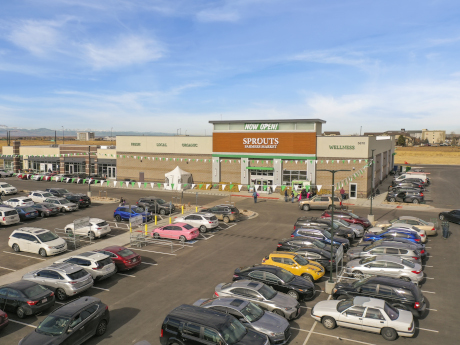By Brandon Wright, Associate, Blue West Capital
Retail properties in Colorado have experienced significant cap rate compression over the past five years and are selling for premiums compared to most markets across the country. Since 2019, the average cap rate for a single-tenant retail property in Colorado has compressed by 79 basis points, while cap rates for multi-tenant retail properties have compressed by 74 basis points. Cap rates this year for single- and multi-tenant retail properties in Colorado averaged 5.42 percent and 6.10 percent, respectively, through September 2022. Nationally, the average cap rate for these two property types were 5.62 percent and 6.53 percent.
Cap rates in Colorado have remained compressed despite various headwinds facing the market. There’s a notable supply and demand imbalance of high-quality properties. The limited inventory of available properties and strong national demand for Colorado properties has helped keep cap rates near record lows. Public and private REITS, family offices, high-net-worth individuals and 1031 exchange investors remain optimistic on Colorado for its long-term upside and growth, and are looking to deploy capital here.
Colorado has a vibrant and diverse economy, in addition to strong demographics that include a young and educated workforce. It is the fifth most educated state, according to WalletHub, and ranks second in the country for highest percentage of bachelor’s degree holders. It was also ranked the fourth best state to do business in 2022, per CNBC.
The population of Colorado grew by 14.8 percent between 2010 and 2022, adding nearly 1 million new residents. By 2030, Colorado’s population is projected to increase by more than 700,000 new residents, a 12 percent increase. In the past 12 months, $2.3 billion of retail properties sold in Colorado. This is a substantial increase when compared to the five-year annual average of $1.4 billion.
Rising interest rates, inflation and the possibility of a prolonged recession are all headwinds facing the national real estate market and applying upward pressure on cap rates. In the coming months, we expect cap rates to continue to rise and transaction volumes to decline nationally. Property valuations in Colorado should fare better than most markets nationally due to the forecasted growth and positive long-term investor sentiment. However, the ride may become choppy in the near term, possibly offering buyers with available cash a great opportunity to acquire quality commercial investment properties.



